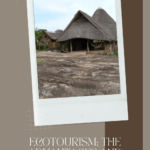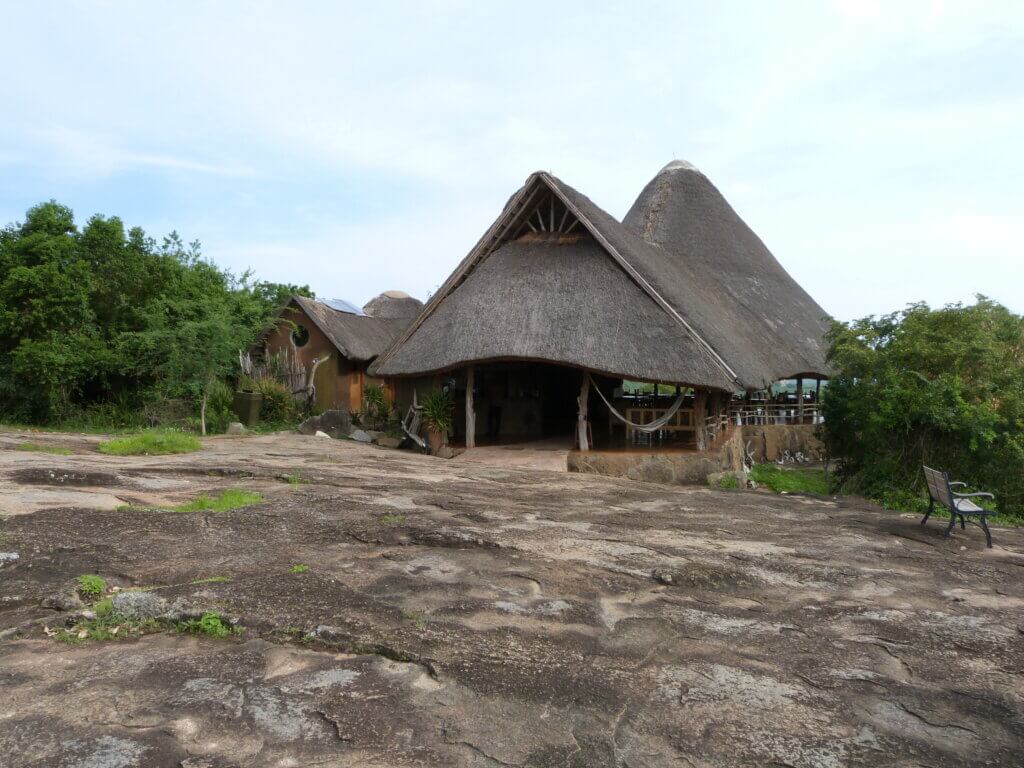*This post contains affiliate links, if you click a link I make a small commission and you help support the blog
Ecotourism has become a growing trend in recent years and for good reason. Travelers are now wanting to have less of a negative impact on the places they visit and keep the natural areas pristine for future generations.
What is ecotourism?
The term ecotourism, is a type of tourism defined by the International Ecotourism Society, as the “responsible travel to natural areas that conserves the environment, sustains the well-being of the local people, and involves interpretation and education” (TIES, 2015). It combines responsible travel with sustainable tourism and closely involves the local community in its execution.
The ecotourism industry
The industry is meant to have a positive impact on the local economy utilizing sustainable development while also keeping the local culture intact. In most cases, this has been happening, but not always.
To go on an ecotourism adventure, the most popular are those that explore the local wildlife and natural spaces. Local communities, in these rich biodiversity hotspots, such as Costa Rica, have begun to work with natural resource agencies to provide sustainable and ecofriendly hotels, goods and services that provide profit to the local people and protect wild animals and their habitat for generations to come.

But this fast growing industry, as positive as it is, can come with some serious disadvantages as well. Lets take a look at some of the big pros of ecotourism first and then we will dive in the negatives of ecotourism to have a clearer picture on ecotourism and how we as adventurers can contribute.
Advantages of ecotourism
Habitat loss is a major threat to native species and has resulted in them becoming endangered species that are now listed under the IUCN CITES listing. To mitigate some of these species impacts, nature conservation and environmental protection through the creation of marine sanctuaries and varying types of wildlife preserve. These natural environments are a safe haven for native species and a huge draw to adventure travelers everywhere.

One of the biggest advantages are the impacts on local communities. A struggling economy is a major problem in underdeveloped nations and tourism has become a huge boost for them. Providing access to these natural resources, not only educates travelers but it also educates the local people working in this areas and gives them a sense of pride and ownership to the flora and fauna in their area.
It is also a huge boost to small businesses, as tourists will head out on their adventures and then come and spend money in shops and restaurants that surround the area.
Another benefit of ecotourism is the reduction in ones carbon footprint. We love to travel, we love to explore, that’s why you are reading this post but we cannot ignore our impact on the planet as we consume.
From plane trips to the plastic water bottles handed out during game drives, it all adds up. But by choosing these types of adventures, the people we are booking with are making conscious decisions about how to provide more sustainable activities with less impact on the planet.
Disadvantages of ecotourism
When people think about ecotourism, they only think of the positives and often forget or overlook the potential negative effects if not done properly. When planning your ecotourism adventure, keep in mind these potential impacts and ask questions of the company you plan to book with to ensure you are making the informed decisions possible.
On of the big potential cons of ecotourism is the impact on local people. I know I said it is an advantage, and it can be, but it can also be a huge disadvantage. It is the hope of the ecotourism industry that it cultivate respect for cultures while also providing them with sustainable income for years to come.
The problem comes when companies exploit the local people, particularly indigenous groups who, instead of educating tourists about their incredible culture (which is what they are trying to do and hope to provide) they are being used as a photo opportunity by the tourists who don’t care to hear about the rest but view them as more of a side show attraction. On top of that, they are often used for cheap labor, while the actual company (often from a richer country) is bringing in the majority of the profits.
So when booking your adventure find out, does the company use all local guides and are they paid a fare wage? Does the company partner with local hotels and restaurants, to maximize the income remaining in the country? How do they mitigate the waste produced by visitors?
The other major con of ecotourism is the potential environmental damage. Though many may have gone into this industry with good intentions, the fast rise in its growth has led to the regulations being left behind struggling to keep up. Without strict regulations in place, companies can build in sensitive areas, use natural resources that are improperly sourced and destroy habitat.
This boom has also caused a huge influx of tourists, which has started to put a strain on the areas they are visiting through overuse of areas. When you go hiking in the national parks, the signs tell you to stay on trail because the plant life in those areas are sensitive. With huge crowds of people, these rules are inevitably broken by inconsiderate people and the damage that their footfall causes on these areas is irreparable. A huge human presence can be destructive.
Ecotourism destinations
Don’t get me wrong, there are some incredible ecotourism destinations, such as Costa Rica, who are making a concerted effort to live as gently on the earth as possible, while having a thriving economy.
My advice is to do your research on a company you are interested in traveling with or design your own trip working with only local groups, avoiding the bigger Western companies that may say they work with local people but only exploit them for profit.
Concluding Thoughts
Providing ecotourism options can be a sustainable solution and address some of the environmental issues. One great example is the gorilla trekking adventure in Uganda, where numbers of mountain gorillas have rebounded thanks to local communities becoming more involved and the local people have a reliable source of income at the same time.
The growth of ecotourism in these developing countries has provided both economic value and possible solutions but it is not perfect. There needs to be tighter regulations and more education to both local people and tourists with a more open dialogue of how to make this a positive impact with no negative side effects.







